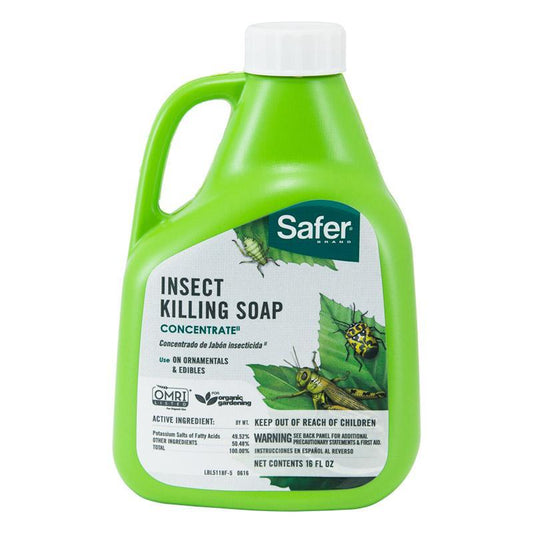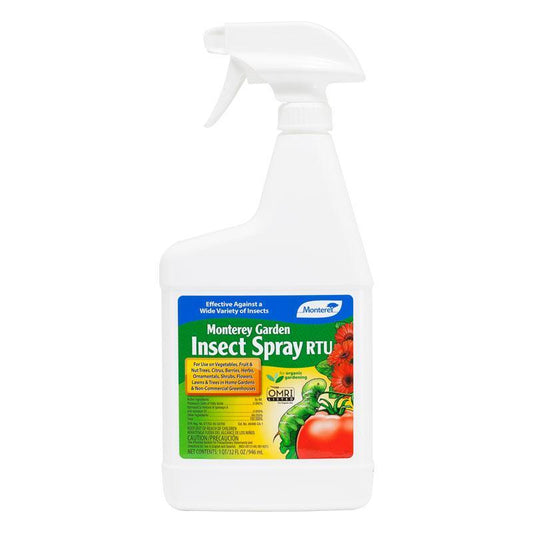Insecticidal Soaps: A Natural Solution for Pest Control
Insecticidal soaps have gained popularity recently as a safe and effective alternative for controlling pests in gardens and on houseplants. These eco-friendly products offer a powerful solution for gardeners and homeowners looking to protect their plants without resorting to harsh chemical pesticides.
Understanding Insecticidal Soaps
As the name suggests, insecticidal soaps are solutions primarily composed of potassium salts of fatty acids. These fatty acids are derived from natural sources, such as vegetable oils or animal fats. The combination of these fatty acids disrupts the cell membranes of soft-bodied insects, leading to their dehydration and eventual demise.
Benefits of Insecticidal Soaps
-
Safe for the Environment: One of the key advantages of insecticidal soaps is their eco-friendliness. These products break down quickly in the environment, posing minimal risk to non-target organisms, such as birds, beneficial insects, and mammals. They also leave no harmful residues in the soil.
-
Safe for Beneficial Insects: Insecticidal soaps specifically target soft-bodied insects like aphids, mealybugs, and spider mites, sparing beneficial insects like ladybugs, lacewings, and bees. This makes them an excellent choice for integrated pest management (IPM) systems, which aim to maintain a balanced ecosystem in your garden.
-
Non-Toxic to Humans and Pets: Insecticidal soaps are generally safe for humans and pets once they have dried on the treated plants. However, following the manufacturer's instructions for application and drying time is still advisable.
-
Minimal Residue: Unlike synthetic chemical pesticides, insecticidal soaps leave behind little to no residue on plant leaves. This is crucial for gardeners who grow edible crops, as it reduces the risk of ingesting harmful chemicals.
Using Insecticidal Soaps
When using insecticidal soaps, following the manufacturer's instructions for application and dilution ratios is essential. Here are some general guidelines:
-
Identification: Properly identify the pest infesting your plants to ensure that insecticidal soap is the appropriate solution. It is most effective against soft-bodied insects like aphids, whiteflies, and spider mites.
-
Application: Spray the solution evenly on all affected parts of the plant, including the undersides of leaves where pests often hide. Ensure thorough coverage, as contact with the solution is necessary for it to be effective.
-
Timing: Apply insecticidal soap early in the morning or late in the afternoon when temperatures are cooler, as extreme heat can stress plants. Avoid applying during full sun or when plants are under drought stress.
-
Repeat as Needed: Insecticidal soaps may require multiple applications at weekly intervals to completely eliminate the pest population. Be patient and persistent in your treatment.
Considerations and Precautions
While insecticidal soaps are generally safe and effective, there are some important considerations:
-
Plant Sensitivity: Some plants, especially those with delicate or hairy leaves, may be more sensitive to insecticidal soaps. Always test a small area of the plant first to ensure there is no adverse reaction.
-
Rainfall: Insecticidal soap is susceptible to wash-off from rain. If rain is expected shortly after application, you may need to reapply the solution.
-
Storage: Store insecticidal soap products in a cool, dry place away from extreme temperatures, as they can lose their effectiveness if exposed to heat or cold.
Insecticidal soaps are a valuable tool in the arsenal of organic gardeners and environmentally-conscious homeowners. Their ability to target specific pests while minimizing harm to beneficial organisms and the environment makes them a sustainable choice for pest control. When used correctly and in conjunction with proper gardening practices, insecticidal soaps can help you maintain healthy, pest-free plants while keeping your garden's ecosystem in balance.




